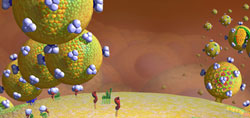Although treating hepatitis C in mono- and HIV-coinfected patients has become simpler and safer, clinicians need to be aware of drug-drug interactions between HCV direct-acting antivirals (DAAs) and HIV antiretrovirals (ARVs); HBV reactivation during HCV treatment, risk for hepatocellular carcinoma (HCC) and HCV reinfection, especially among people who are at ongoing risk; they should be offered both annual and risk-based HCV RNA testing.(1)
Drug-drug interactions
Some DAAS have less propensity for drug interactions, but some patients may need to switch ARVs –or other medicines- before they start HCV treatment. For example, proton pump inhibitors (PPIs) can interact with some DAAs, especially among people with cirrhosis. Reducing the dose of PPIs to 20mg once-daily may increase the likelihood of cure.(2) Statins may be contraindicated with certain DAAs; 14 cases of rhabdomyolysis in people using statins during HCV treatment have been reported to FDA; with HCV protease inhibitors, the propensity for drug interactions increases in people with liver disease.
Clinicians can check for drug-drug interactions between DAAs, ARVs and other commonly used medicines at www.hiv-druginteractions.org and www.hep-druginteractions.org.
HBV reactivation
HCV can suppress hepatitis B virus (HBV) replication; once treatment renders hepatitis C virus undetectable, HBV reactivation may occur. Since November 2013, 29 cases of HBV reactivation (defined as an increase in HBV DNA or seroconversion to HBVsAg positive) were reported to the US FDA (2 were fatal, 1 required transplantation and 10 were hospitalized). Because of this risk, guidelines from the American Association for the Study of Liver Disease /Infectious Diseases Society of America (AASLD/IDSA) and the European Association for the Study of the Liver (EASL) recommend pre-HCV treatment testing for HBV surface antigen, anti-HBc antibodies and anti-HBs antibodies.
Both the FDA and the EMA have issued warnings about HBV reactivation during or after HCV treatment; they recommend testing for evidence of past or current HBV infection before starting HCV treatment and, for HCV/HBV coinfected patients, monitoring and management according to current clinical guidelines.
There is no risk for HBV reactivation among people who are HBsAg-ve/anti HBc-ve; risk is very low among people who are HBsAg-ve/anti HBc +ve; the risk is moderate among HBsAg+ve/anti HBc +ve people, and depends on HBV DNA. (3-6)
DAA treatment and hepatocellular carcinoma (HCC) risk
There have been reports of an unexpectedly high incidence of de novo and recurrent hepatocellular carcinoma among cirrhotic HCV patients after they were cured by DAAs. But this is controversial: other studies and a meta-analyses did not find an increased incidence of de novo or recurrent HCC post-DAA treatment.(7,8) More research is needed, using consistent screening and data collection - but until results are available, clinicians should monitor patients with risk factors for HCC (cirrhosis, male gender, > 60 years of age, diabetes, alcohol use and history of HCC, with tumor size >2.5 cm, and for people who were not cured by DAAs, baseline albumin <3.5g/dl and PLT <120 X 103/dl).(7,9)
References:
1. Rockstroh JK. What do clinicians need to watch for with HCV therapy? 4th International HIV/Viral Hepatitis Co-infection Meeting. 22-23 July, Paris, France.
2. Tapper EB , Bacon BR, Curry MP, et al. Evaluation of proton pump inhibitor use on treatment outcomes with ledipasvir and sofosbuvir in a real-world cohort study. Hepatology. [Online] 2016 Dec [Cited 2017 August 3] ;64(6):1893-1899. Available from: doi: 10.1002/hep.28782.
3. Liu CH, Liu CJ, Su TH, et al. Hepatitis B Virus Reactivation in Patients Receiving Interferon-Free Direct-Acting Antiviral Agents for Chronic Hepatitis C Virus Infection.Open Forum Infect Dis [Online}. 2017 Feb 11 [Cited 2017 August 4];4(1):ofx028. Available from: 10.1093/ofid/ofx028.
4. Londoño MC, Lens S, Mariño Z et al. Hepatitis B reactivation in patients with chronic hepatitis C undergoing anti-viral therapy with an interferon-free regimen. Aliment Pharmacol Ther [Online] 2017 Apr [Cited 2017 August 4] ;45(8):1156-1161. Available from: 10.1111/apt.13985.
5. Wang C, Ji D, Chen J, et al. Hepatitis due to Reactivation of Hepatitis B Virus in Endemic Areas Among Patients With Hepatitis C Treated With Direct-acting Antiviral Agents. Clin Gastroenterol Hepatol [Online] 2017 Jan [Cited 2017 August 4];15(1):132-136. Available from: 10.1016/j.cgh.2016.06.023.
6. Yeh ML, Huang CF, Hsieh MH et al. Reactivation of hepatitis B in patients of chronic hepatitis C with hepatitis B infection treated with direct-acting antivirals. . J Gastroenterol Hepatol [Online]. 2017 Feb 23 [Cited 2017 August 4]. Available from: 10.1111/jgh.13771.
7. Reig M, Boix L, Mariño Z, et al. Liver Cancer Emergence Associated with Antiviral Treatment: An Immune Surveillance Failure? Semin Liver Dis [Online] 2017 [Cited 2017 August 5] ; 37(02): 109-118
Available from: 10.1055/s-0037-1601349
8. Waziry R, Hajarizadeh B, Grebely, J et al. No evidence for higher risk of hepatocellular carcinoma occurrence or recurrence following direct-acting antiviral
HCV therapy: a systematic review, meta-analyses, and meta- regression. (Abstract PS-160).EASL International Liver Congress. Amsterdam, April 19-23, 2017.
9. Calvaruso V, Cabibbo G, Cacciola I, et al. Occurrence of hepatocellular carcinoma in patients with hepatitis C virus related liver disease treated with direct-acting antivirals. (Abstract PS-038) EASL International Liver Congress. Amsterdam, April 19-23, 2017.
08/07/17
Keeping Watch for Drug-Drug Interaction, HBV Reactivation, and HCC during HCV Treatment
Source: Reporting from Paris for the PRN News: Tracy Swan

